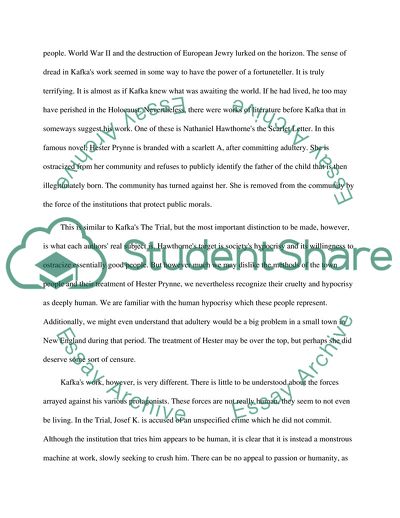Cite this document
(Kafka, Hawthorne, and Coetzee Essay Example | Topics and Well Written Essays - 1500 words, n.d.)
Kafka, Hawthorne, and Coetzee Essay Example | Topics and Well Written Essays - 1500 words. https://studentshare.org/literature/1751914-compare-3-books-one-kafka-pre-cursor-one-kafka-novel-one-post-kafka-novel
Kafka, Hawthorne, and Coetzee Essay Example | Topics and Well Written Essays - 1500 words. https://studentshare.org/literature/1751914-compare-3-books-one-kafka-pre-cursor-one-kafka-novel-one-post-kafka-novel
(Kafka, Hawthorne, and Coetzee Essay Example | Topics and Well Written Essays - 1500 Words)
Kafka, Hawthorne, and Coetzee Essay Example | Topics and Well Written Essays - 1500 Words. https://studentshare.org/literature/1751914-compare-3-books-one-kafka-pre-cursor-one-kafka-novel-one-post-kafka-novel.
Kafka, Hawthorne, and Coetzee Essay Example | Topics and Well Written Essays - 1500 Words. https://studentshare.org/literature/1751914-compare-3-books-one-kafka-pre-cursor-one-kafka-novel-one-post-kafka-novel.
“Kafka, Hawthorne, and Coetzee Essay Example | Topics and Well Written Essays - 1500 Words”. https://studentshare.org/literature/1751914-compare-3-books-one-kafka-pre-cursor-one-kafka-novel-one-post-kafka-novel.


